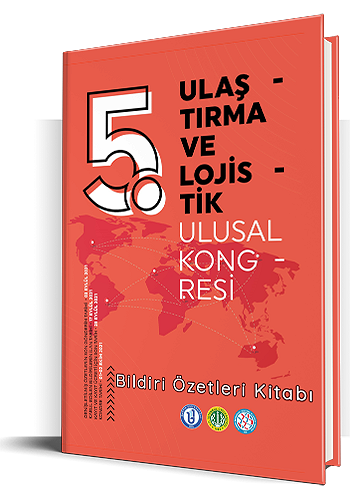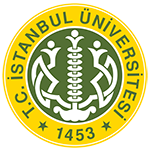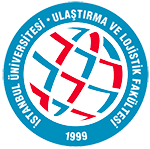
Ulaştırma ve Lojistik Kongreleri
- Türkçe
- Özet
- 2021
Lojistikte Son Trendler ve Tersine Lojistik Uygulamaları: Freşa Firması Örneği
Halime Artul
Giresun Üniversitesi, Giresun, Türkiye
Mustafa Ergün
Dr. Öğr. Üyesi, Giresun Üniversitesi, Giresun, Türkiye
Ekonomik faaliyet olarak lojistik, insan uygarlığının en başından beri var olmuştur. İnsan topluluğu, güvenlik ihtiyaçlarını karşılamak, avladıkları hayvanları taşımak göç etmek gibi gerekçelerle lojistiğe ihtiyaç duymuştur. Lojistik hizmetleri başta sadece orduların ihtiyaçlarını desteklemek amacıyla kullanılan bir terim olarak ortaya çıkmıştır. Ancak günden güne değişen ve küreselleşen dünya ticareti ekseninde lojistik sektörü de çeşitli yeniliklerle karşı karşıya kalmıştır. Diğer sektörlerle karşılaştırıldığında lojistik sektörü daha genç ve dinamik bir yapıya sahiptir. Dolayısıyla işletmeler tarafından lojistik sektörüne verilen önem daha da artmaktadır. İşletmeler lojistik hizmetlerin geleneksel faaliyetlerden ibaret olmadığını anlamışlar ve rekabet avantajı elde etme stratejileri ekseninde yeni trendleri uygulamaya başlamışlardır. Bu değişim ile birlikte lojistik işletmeler pek çok yeni kavramla karşılaşmıştır. Küreselleşmenin yol açtığı bu kaçınılmaz durum makro ve mikro ekonomik çevrede ortaya çıkan değişimlerle alakalıdır. Yenilik denildiğinde ilk akla gelen ürün inovasyonu ve teknolojik inovasyon olduğu için hizmet sektöründe yenilik büyük oranda perde arkasında kalmıştır. Ancak lojistik işletmeleri değişen müşteri istek ve ihtiyaçları karşısında oluşan yeniliklere cevap vermişler, bu yeni durumun lojistik üzerinde yaptığı değişimi ele almışlar ve uygulamalarını buna göre yapmaya çalışmışlardır. Bu kapsamda müşterilerde artan çevresel hassasiyetler nedeniyle tersine lojistik faaliyetlerinin etkin bir şekilde gerçekleştirilmesi işletmeler için bir zorunluluk haline gelmiştir. Gelecek nesillere yaşanabilir bir dünya bırakmak için lojistik sektörü içinde yer alan tüm birimler tersine lojistik uygulamalarını misyon ve hedef olarak belirlemeli ve uygulamaya koymaları işletmelerin sürdürülebilirliği, rekabet avantajı elde etmeleri, değişim ve gelişime entegre olabilmeleri açısından büyük önem taşımaktadır. Bu çalışmada lojistikte gelişen son trendlerin daha iyi anlaşılması için teorik ve tanımsal bilgiler verilmiş, tersine lojistik faaliyetlerinin işletmelere katkısı açıklanmaya çalışılmıştır. Bu doğrultuda Giresun’da faaliyet gösteren doğal mineralli maden suyu işletmesi olan Freşa firmasının tersine lojistik faaliyetlerini uygulama düzeyi analiz edilmiştir. Çalışmanın amacı tersine lojistik faaliyetlerini ve sürecini açıklamak ve bu süreçteki sorunların tespit edilmesini sağlamaktır. Diğer yandan sektörde karşılaşılan sorunlar belirlenerek bu doğrultuda önerilerde bulunulmasının, işletmelere olumlu yönde katkı sağlaması umulmaktadır. Çalışmada veri toplama yöntemi olarak ses kayıt cihazı ve not alma tekniği birlikte kullanılarak işletme yetkilisi ile yüz yüze görüşme yapılmıştır. Görüşme sonucunda elde edilen bulgular rapor haline getirilmiş ve işletmelere katkı sunması adına sürecin etkin yönetilmesinin getireceği avantajlar belirtilmiştir.
Anahtar Kelimeler: Tersine Lojistik, Üretim İşletmesi, Lojistik Yönetimi
Latest Trends In Logistics And Its Applications In Reverse Logistics: Example of Freşa Company
Logistics as an economic activity has existed since the very beginning of human civilization. The human community needed logistics for reasons such as meeting their security needs, transporting the animals they hunted, and migrating. Logistics services initially emerged as a term used only to support the needs of armies. However, in the axis of world trade, which is changing and globalizing day by day, the logistics sector has also faced various innovations. Compared to other sectors, the logistics sector has a younger and more dynamic structure. Therefore, the importance given to the logistics sector by businesses is increasing. Businesses have understood that logistics services do not consist of traditional activities and have started to implement new trends in the axis of strategies to gain competitive advantage. With this change, logistics businesses have encountered many new concepts. This inevitable situation caused by globalization is related to the changes in the macro and micro economic environment. Innovation in the service sector has largely remained behind the scenes, as the first thing that comes to mind when innovation is product innovation and technological innovation. However, logistics enterprises have responded to the innovations that have occurred in the face of changing customer demands and needs, have addressed the change made by this new situation on logistics and have tried to implement their practices accordingly. In this context, effective implementation of reverse logistics activities has become a necessity for businesses due to increasing environmental sensitivities in customers. In order to leave a livable world to future generations, all units in the logistics sector should determine and implement reverse logistics activities as a mission and target, and it is of great importance for businesses to gain sustainability, competitive advantage, and integrate into change and development. In this study, theoretical and descriptive information has been given in order to better understand the latest trends in logistics, and the contribution of reverse logistics activities to businesses has been tried to be explained. In this direction, the application level of reverse logistics activities of Freşa company, which is a natural mineral mineral water business operating in Giresun, has been analyzed. The aim of the study is to explain the reverse logistics activities and process and to identify the problems in this process. On the other hand, it is hoped that determining the problems encountered in the sector and making suggestions in this direction will contribute positively to the enterprises. In the study, a face-to-face interview was conducted with the business representative by using a voice recorder and note-taking technique together as a data collection method. The findings obtained as a result of the interview were reported and the advantages of effective management of the process were stated in order to contribute to the enterprises.
Keywords: Production Companies, Logistics Management, Reverse Logistics


Bu çalışma, kullanan kişilere orjinal çalışmadan alıntı yaptıkları sürece, çalışmayı dağıtma, değiştirme ve üzerine çalışma hakkı tanıyan Attribution 4.0 International (CC BY 4.0) lisansı ile lisanslanmıştır.
İletişim
İstanbul Üniversitesi Ulaştırma ve Lojistik Fakültesi
İ.Ü. Avcılar Kampüsü 34320 Avcılar/İstanbul
ulk@istanbul.edu.tr
+ 90 (212) 440 00 00 - 19200


